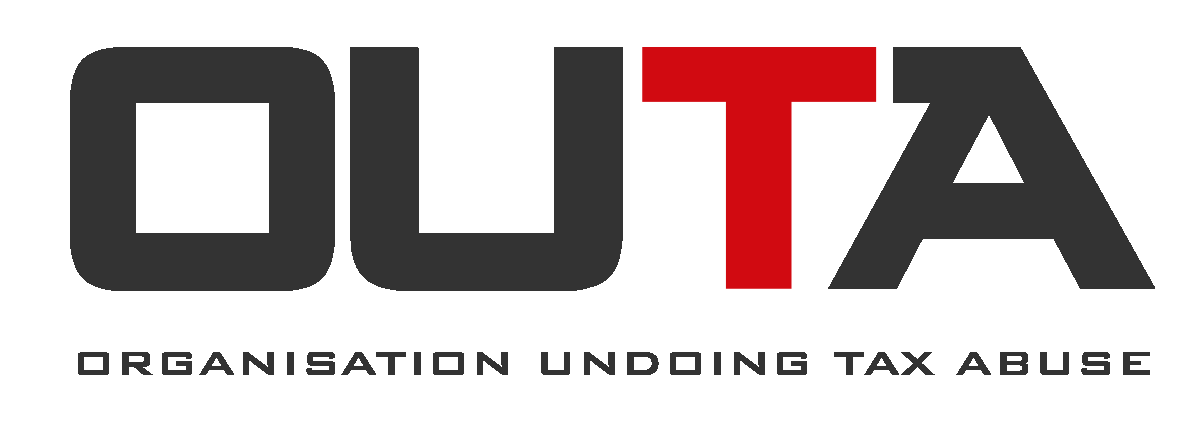l
Image: Flckr / GovernmentZA / OUTA
Municipalities start counting the cost as AARTO looms
Municipalities are now realising the cost and difficulties of implementing the controversial AARTO system.
AARTO is the Administrative Adjudication of Road Traffic Offences Act, which has been in force for years in the Gauteng province only. AARTO was however amended by the AARTO Amendment Act, enabling AARTO to be rolled out across the country, and to introduce the enforcement of a demerit points system, and the diversion of 50% of the traffic fine revenues from municipalities to the Road Traffic Infringement Authority (RTIA). The date when the AARTO Amendment Act will take effect – when AARTO will be used nationwide – has not yet been gazetted by President Cyril Ramaphosa.
OUTA has repeatedly said that valid and effective measures to improve traffic safety should be supported, but that AARTO is bureaucratically clumsy and appears to be primarily a fund-raising system which appears unlikely to contribute to road safety. OUTA won a court challenge against the AARTO Amendment in the Pretoria High Court in January 2022, but this was overturned by the Constitutional Court in July 2023 (see here).
The Swellendam report says it is expected to take effect from 1 July 2024, the start of the municipal financial year.
On 30 January, a report was tabled at the Swellendam local municipality council meeting which raised concerns that it could cost the municipality up to R7 million in lost revenue, which would be diverted to the Road Traffic Infringement Authority (RTIA).
The Report on the Impact of the Implementation of the AARTO Act is in the council agenda here (Item A18, pages 53-57). It went through the council’s Public Accounts Committee in December, and includes inputs from the municipal manager and the municipality’s directors of corporate services, community services, financial services and infrastructure services.
Points raised in the report include:
The municipal manager’s input: “The financial implications of AARTO are extremely significant and substantial to the financial sustainability of the Traffic Services and to the Municipality. The various scenarios show losses of between R3.7 million to as much as R5m and more. Currently the service generates a surplus and is crucial to the financial wellbeing of the Municipality. A loss of R3 million to R5 million will mean not just shutting down the Traffic Services but also a reduction in other posts and functions that are dependent on the surpluses generated by the Traffic Services Department.”
Elsewhere in the report it notes that the loss of revenue from provincial traffic fines could be R5m to R7m, while municipal fines could decline about R7m. “This means that the traffic department budget net position will decline from a surplus of R3.7 million to a deficit of (R1.9 million).”
This raises questions on how the municipality will balance the budget, suggested that this may be done through cross-subsidies from other tariffs or cutting expenditure. “The municipality does not have the revenue base to absorb the revenue loss.”
The report further raises implementation concerns and difficulties. “Most Western Cape municipalities are still not comfortable with AARTO and indicated that they are not ready for implementation and did not feel comfortable with the implementation of AARTO. They are also of the opinion that RTIA (Road Traffic Infringement Agency) is also not in a position to deal with the administrative burden it will cause.”
There are concerns about documenting the money trail as fines revenue must go from the municipality to the RTIA and, some of it, back again.
The financial implications for municipalities are referred to as “high risk”, with municipalities obliged to carry extra costs but facing the loss of significant revenue.
The municipality must hand over the fines collected to the RTIA within 10 days, and the RTIA refunds some to the municipality, but there is “no guarantee on payback time frames”.
The municipality will have to pay for new infringement books updated to AARTO requirements, new software and ICT equipment – and staff training on all this – and there is no clarity over whether the municipality or RTIA pays for speed cameras and devices.
The report notes that the Western Cape was supposed to have run AARTO pilot sites, but this didn’t go ahead after the Municipal Managers’ Forum asked the relevant MEC not to agree to this due to concerns over the financial impact and “the impracticality of AARTO”.
“On paper AARTO might look like the silver bullet that will improve road safety, but in fact the practical issues surrounding the implementation of this flawed system will do the exact opposite,” says Andrea van Heerden, OUTA Senior Legal Project Manager.
OUTA reiterates that merely legislating policy doesn’t make it rational or workable. Governments often suffer from the false belief that if the laws and regulations are in place, the people will simply comply. Irrational or impractical laws and a lack of transparency results in pushback from society, making systems ungovernable. The sad reality is that government begins to suffer from a crisis of legitimacy when it cannot effectively enforce its legislation and policies.
More information
A soundclip with comment by OUTA’s Andrea van Heerden in English is here and by OUTA's Executive Director Advocate Stefanie Fick in Afrikaans is here.
The Concourt judgment of July 2023 is here and more on OUTA's work on AARTO is here.
Help us oppose corruption
OUTA is standing up against government corruption and mismanagement.
Our work is made possible though donations by our paying supporters.
Join us in working towards a better South Africa by becoming a paying OUTA supporter.
In 2023, we were in court challenging the Karpowership generation licences and SANRAL’s secrecy over toll profits. These cases continue.
We have also challenged electricity prices and we defend South Africa’s water resources.
We want to see South Africa’s tax revenue used for the benefit of all, not a greedy few.
Any amount welcome.
